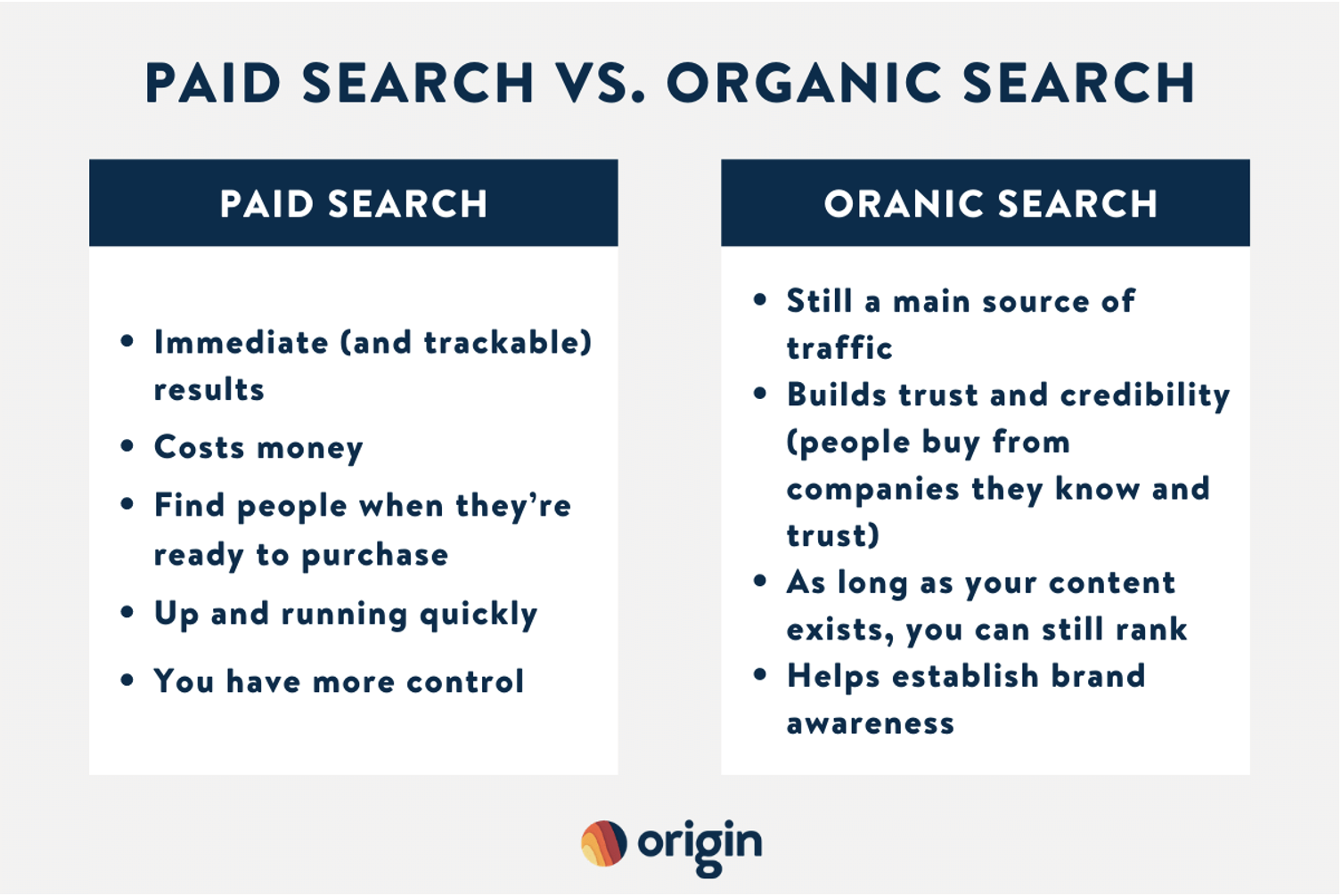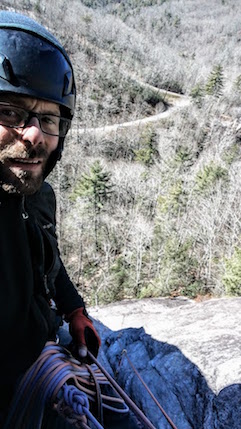How Paid Search Works for Guiding Companies
It’s the height of your season and bookings are low. You’ve posted on social media, sent email newsletters, and you’ve been optimizing your web pages. What else can you do to generate more bookings (and have the budget to do so)? Paid search.
What’s Paid Search?
Paid search is when you pay an online marketer (i.e. – Google Ads, Microsoft Advertising, Quora, AdRoll, Amazon, LinkedIn, and Pinterest) to place an ad on their site in front of your targeted audience based on keywords. Every time a consumer clicks on (or sees) your ad, you pay the marketer.
Paid search differs from organic search in terms of cost, timeliness, and results. Paid search costs to show up in search results but you’ll see results as soon as you’re up and running. Plus, you can start and stop your campaigns, change your targeted keywords, and where you want your ads to appear whenever you want.
On the other hand, paid search will cost you and once you end your campaign, you’ll stop showing up in results. With organic search, as long as your optimized content exists, you’ll continue to appear in search results.
Steps For Paid Search Campaigns
While paid search campaigns differ depending on the platform you’re using, this is generally how they work.
Step 1: Determine Your Goal
Know what it is you want to accomplish through paid search. This will keep you focused and save money when creating (and paying for) campaigns. Think about making a S.M.A.R.T (Specific, Measurable, Achievable, Relevant, and Timely) goal to keep you focused and measuring your success.
An example of a S.M.A.R.T goal for a rock climbing company could be, “Increase online bookings by 10% in three months.”
Step 2: Choose A Geographical Area
The same rock climbing company will need to choose a location where they want their ad to show. You can pick the city in which you’re headquartered, the areas where you guide, or pick your entire state.
This ensures that only people who can book with you will be able to. It’d make no sense to show up in a New York state search when you operate in Colorado.
Step 3: Come Up With A List of Keywords
Keywords are what consumers type into search engines. Start by thinking of how your guests have described your guiding business, phrases used in reviews, and how people refer to your activity on social media.
You can use Google’s free tool, the Google Keyword Planner to discover related keywords. FYI: You’ll have to create a Google Ads account but you won’t have to start a campaign to use the tool.
Step 4: Decide What Kind Of Match Type You Want
“Match type” is one way of saying how close the consumer’s keyword is to your targeted keyword you’ll show up for. There are five common match types: Exact, Broad, Phrase, Modified Broad, and Negative.
Exact Match: Your ads show only when a consumer uses your exact keyword(s). It will still show for plurals and spelling mistakes. Example: if your phrase is “rock climbing guides,” you’ll only appear when someone uses that exact keyword phrase.
Broad Match: Your ad shows when a consumer uses your keywords (“rock climbing guide”) in any order or with synonyms. Example: “climbing guide” or “guide for rock climbing.”
Phrase Match: Your ad appears when a consumer uses your keyword phrase (“rock climbing guide”) with words before or after it. Example: “beginner rock climbing guide.”
Modified Broad: This is similar to the broad match in that your ad will show up when a consumer uses your keywords (“rock climbing guide”) in any order but the difference is that it won’t use synonyms.
Negative: Using negative words means you won’t show up for those search terms in results.
Should You Use Paid Search In Your Marketing?
It depends. If you want to show up in search results today and have the budget for it, then it makes sense to incorporate paid search into your marketing.
Companies that only guide during a specific season will benefit more from paid search than a year-round guiding company. For example, the whitewater rafting season is usually from May to September. Running a paid advertising campaign through these months guarantees you’re finding customers when they’re searching for that activity. You’ll waste your marketing budget if you’re running ads in December.
As we mentioned earlier, it’s important to consider your goals for paid search. What exactly do you want to accomplish by showing up in search results when someone types in your target keyword phrase?
A couple key questions to consider when deciding whether to use paid search are:
- What are your goals?
- Do you have the money to pay for this? On average, companies spend $1,000-$10,000/month on paid search campaigns.
- Who’s going to be in charge of managing the paid search campaign?
- Can you handle more customers? How many per month?
- Is your website ready to take online bookings?
Answering those questions will help you clarify whether paid search is right for you. If not, there are plenty of other ways – like social media and blogging – to get more guests that are free.
About the Author:
Jessica is the Digital Marketing Specialist for Origin. Origin is innovative online booking software designed specifically to help tour guides and outfitters keep trip reservations and staff availability up-to-date, prevent overbookings, and even help you assign guides to newly booked trips with automated text messages to confirm availability. Interested in learning more? Schedule a call with us or visit our website: www.exploreorigin.com













